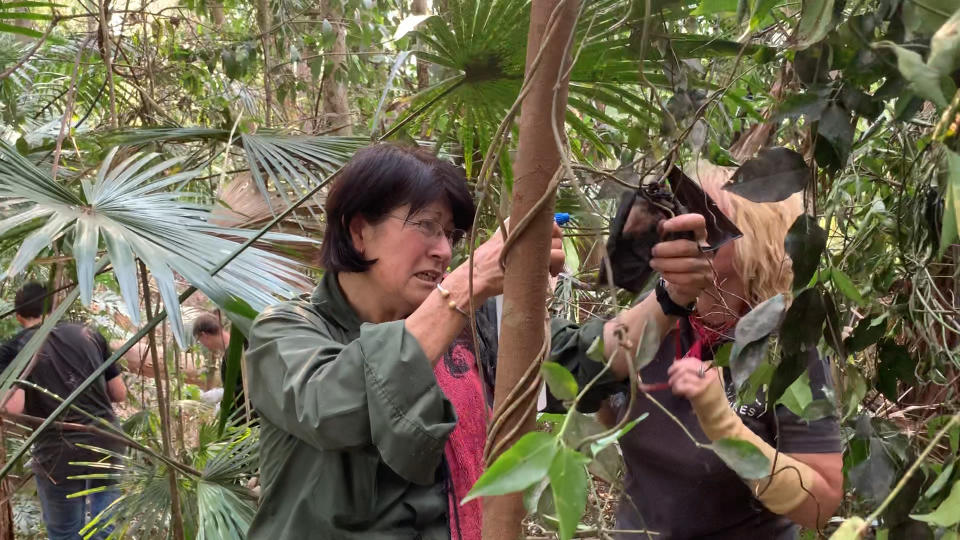Brutal heatwave continues to decimate 'vulnerable' bat population
Australia lost 10 per cent of its grey-headed flying fox population last month, and over the weekend hundreds more died in the extreme heat.
Babies are particularly affected by temperatures which are routinely exceeding 40 degrees this summer.
Like koalas, when it becomes too hot, flying fox babies make their way down from the trees.
They are searching for water and cooler areas.
The forest floor is bone dry and the ground is littered with their corpses.
Many animal rescuers across the country spent their weekend spraying down the babies, desperately trying to save a portion of this year’s offspring.
With most volunteers’ homes already at full capacity with patients, it’s a struggle to take any more bats into care.
The only option is to rehydrate bats and return them to the trees rather than take them into care.

At Wyoming, 53km north of Sydney, volunteers were sent into steep bush with spray bottles to try and cool those falling from the trees.
Dry leaves and branches crack underfoot, the cries of dying bats are deafening.
It’s hard to access the animals as the area is overrun with invasive lantana which is scratching up volunteers from WIRES and Wildlife ARC.
At first it’s hard to see the falling babies, but once you see one, you notice that they’re everywhere.
Those that can still climb are given water and then released. The rescuers place the dying in cages or strap them to their bodies.
The flying foxes were then brought to a makeshift triage area between two suburban houses and injected with fluids.


The sickest and youngest were prioritised while the rest were cooled with wet towels.
Red-faced and soaked in sweat, WIRES volunteer Mandy Mitchell was working to rehydrate the screaming, dying animals as she spoke to Yahoo News Australia.
“We’ve only had one adult (die) so far, we’ve probably got 20 babies so far, but we’ve only just started,” she said.
“We’ve only just started, we’ve only just touched the surface.”
By the day’s end 100 babies had been treated for dehydration at Wyoming alone.
Volunteers overrun with calls and patients
Across the area, calls from concerned homeowners kept phones of rescue groups busy.
A call came through about a baby bat clinging to a clothesline. It was dead on arrival.
Another was picked up stuck in a barbed wire fence. Carers say this is a common occurrence.


Further north in Wyong Creek an adult drowned while trying to drink from a dam.
Without bats forests will struggle to recover from fires
The death toll continued to climb with 40 babies found dead further south in Woy Woy that evening.
'Cooking alive': The desperate fight to save Australian wildlife from collapse
‘See you on the other side’: Kangaroo sanctuary owner's dramatic rescue from bushfires
How these orange dots on trees are saving 'desperate' wildlife in bushfires
Rescuers say funds are desperately needed in order to help the bats which are listed as ‘vulnerable’ and Australia’s only long range pollinators.
Without bats, mosts forests will struggle to recover from the bushfires.
“Wildlife carers simply can’t respond to it, it’s too overwhelming,” he said.
“And the flying foxes are basically cooking alive.”
The people pictured tending to flying foxes are registered carers and been vaccinated against Lyssavirus.
Members of the public who encounter sick or injured bats should not handle them, and instead contact a registered wildlife rescue group or vet.
The author Michael Dahlstrom is a registered native bird carer with Wildlife ARC.
Do you have a story tip? Email: newsroomau@yahoonews.com.
You can also follow us on Facebook, Instagram and Twitter and download the Yahoo News app from the App Store or Google Play.




